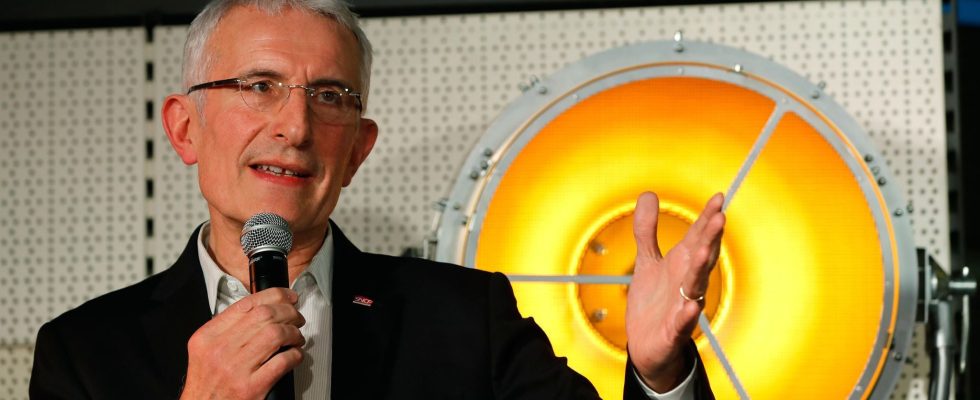Enarque, State Councilor, chief of staff to Martine Aubry at the Ministry of Labor before spending most of his career at the SNCF which he chaired for ten years, Guillaume Pepy is bilingual in technocracy. At the head of the France Initiative network since 2020 – a voluntary mandate which keeps him busy two days a week – he now supports thousands of budding bosses through the twists and turns of business creation.
So obviously, when the 65-year-old former senior civil servant places himself under the auspices of Gaspard Koenig, the liberal essayist and president of GénérationLibre, to demand in the country “a cultural reversal so that freedom prevails over constraint” , we say to ourselves that there is really an emergency. And that the new shock of simplification promised last November by Bruno Le Maire and reaffirmed by Emmanuel Macron a few days ago during his press conference, had better make noise.
The same pain for all
“All the project leaders who contact us, without exception, express the same pain in the face of the regulatory complexity that assail them,” whispers Guillaume Pepy, a mug of tea in his hand. This manifests itself on two levels: when creating their company, with the stacking of declarations and taxes, then in the activity they choose. Whatever the sector, the inflation of standards is limitless. Their watchword is clear: ‘Leave us alone!'” And to cite the story of this engineer from Franche-Comté, converted to the harvest of fir needles from which he extracts essential oils intended for soaps: “You have to hear him detail the multiple safety controls to which it is subjected, it’s dizzying…”
In the chic coworking building, a stone’s throw from the Madeleine church, where he has set up a small office, the president of France Initiative evokes another divide, this one territorial. Thanks to its 206 reference associations, the network can intervene at the foot of HLM bars as well as in the most remote villages. However, of the 25,000 creators or buyers supported last year, only 1,400 came from a priority district of city policy. “That is less than one file per QPV. And we are the most important organization in France… It is very little. There is immense potential to be mobilized in these territories. I see it as a sign of hope after the riots of last summer.”
Neighborhoods and countryside, two visions of the company
Bakeries, snack bars, grocery stores, dry cleaning, home services… In the suburbs, there are plenty of businesses to fill. And there are many obstacles. Lack of experience or confidence of applicants. The virtual absence of bank branches on site, which does not facilitate the preparation of business plans. Or the difficulty in convincing landlords to rent the “empty shells” at the bottom of buildings for free, while a new occupant can prove themselves. But for Guillaume Pepy, the main obstacle lies elsewhere: “When we set up a company there, it’s to give ourselves a chance… to leave the premises as quickly as possible. Public policies must promote the success of neighborhoods, and not just the success of people from the neighborhoods. Otherwise, the bathtub will continue to drain.” In the countryside, the trend is the opposite: aspiring entrepreneurs “want to become self-employed because it is a way for them to stay in the country”. Concerned about their local impact, especially if the surrounding area is in the process of desertification, they assert their roots by favoring short circuits or the circular economy.
In direct contact with VSEs, France Initiative has granted nearly 180 million euros in honorary loans in 2022, with an average amount of 8,300 euros. A drop in the ocean compared to the tens of billions poured out by government plans like France Relance or France 2030? “Our added value is the companionship that is created on the ground,” insists Guillaume Pepy, “between our 25,500 volunteers and the small businesses that they help grow. Because at one point, when we want to create a company, you need to be able to talk to someone.” And not just to an Urssaf digital server. Or the SNCF.
.
